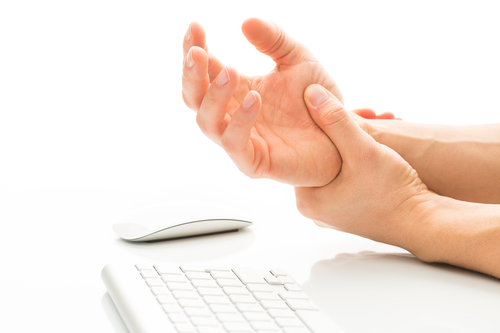
Pinched nerves happen when there is force, strain, or pressure on a nerve area. This scenario causes the nerve to send warning signals all the way to the brain. A pinched nerve is typically a result of a damaged nerve. Thus, treatment for pinched nerve will usually include addressing that issue.
Some of the symptoms of a pinched nerve will include numbness, weakness, pain, and discomfort. The treatment for pinched nerve will entail techniques to alleviate pain.
In today’s post, let’s look at how to reduce these symptoms, prevent the causes of this condition, and what treatment for pinched nerve you can try.
What are the warning signs of a pinched nerve?
There are different warning signs that a pinched nerve may bring. These symptoms may manifest in different parts of the body. They may also worsen either after waking up or when you’re just lying down, or both.
Some of these symptoms are:
- Burning
- Tingling
- Pain
- Muscle weakness
- Numbness
- Pins and needles
- Areas of the body that feel like they have “fallen asleep”

A pinched nerve may also cause other health issues for a person. Some of these are tennis elbow, carpal tunnel syndrome, and sciatica, to name a few. These conditions may manifest themselves if a person already has a pinched nerve.
Typically, a pinched nerve takes place in the back, wrists, elbows, or neck. However, it can also occur in other parts of the body.
Treatment for Pinched Nerve: Home Remedies
Getting more sleep and rest.
Sleep is vital to help with the healing of a pinched nerve. During sleep, the body heals itself. When you give your body more time to sleep, you also give it more healing time. In most cases, allowing the affected area to rest and getting more sleep are enough treatment for a pinched nerve.
When you treat a pinched nerve, it’s also vital to not overuse that part of the body. Overuse can bring more damage to an already swollen or inflamed nerve. If you have a pinched nerve, it’s essential to avoid any movements or physical activities that may further hurt the nerve. Also, sleep in comfortable positions that won’t add pressure on the pinched nerve.
Improving your posture.
Poor posture can cause or worsen a pinched nerve. Standing or sitting with poor posture for long periods adds unnecessary strain on the body. This can cause damage to the spine and muscles, which may then lead to a pinched nerve.
You can also use adjustable chairs, cushions, and neck rests when sitting to help you reduce pressure on your nerve and help it recover.
Making an ergonomic work environment.
Those suffering from a pinched nerve could try making some improvements in their work settings. Get an ergonomic keyboard or mouse to not put any strain on your wrists and hands. You can also raise your computer monitor up to eye level to avoid neck pain.
A lot of people opt for a standing workstation to help their spine. Sitting for long periods could contribute to back pain, so a standing workstation could work to avoid it.
Ergonomic workstations have a variety of positional settings. You can find several that are ideal for when you have a pinched nerve. The best way to find treatment for pinched nerve when it comes to your workstation is by trying several positions – to know which one works for you.
Taking over-the-counter pain relief medications.
Taking anti-pain medications may be a treatment for a pinched nerve. These drugs work to reduce inflammation and alleviate pain in minor cases of this condition.
Also called non-steroidal anti-inflammatory drugs or NSAIDs, some of the examples are ibuprofen, which you can buy from your local pharmacy without a prescription. However, regardless of whether you need a prescription or not, it’s best to consult with your doctor for the right amount of dosage you should take before taking NSAIDs.
Chiropractic Care as a Pinched Nerve Treatment Option

Getting chiropractic care may also help relieve pain and discomfort brought by pinched nerves. This type of treatment involves applying gentle manipulation techniques on the affected areas of the body.
Before getting treatment, a chiropractor will evaluate your condition. This helps him or her know precisely what kind of chiropractic adjustment techniques can be applied to treat your pinched nerve.